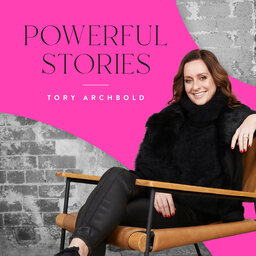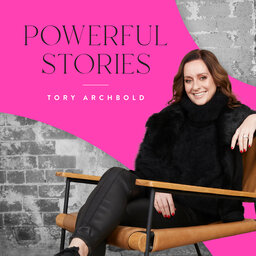The Power of Authenticity and Relatability in Marketing with award-winning CMO Jeanniey Walden
Jeanniey Walden went from an elementary school teacher in the early 90s to a Digital Marketing pioneer in the early 2000s to Global Marketing and Growth Leader for Fortune 1000 companies. Now she is the founder and CEO of Liftoff Enterprises, a leading workplace expert, and host of the nationally syndicated TV show “Liftoff with Jeanniey Walden” and podcast “Liftoff Journeys.”
In this episode, Tory and Jeanniey talk about the importance of authenticity and relatability in marketing. Jeanniey discusses her experience in transforming brands and the role of customer relationships in driving success. Emphasizing the need for data-driven marketing strategies and the importance of measuring success based on brand strength and bottom-line results. She also highlights the significance of building a personal brand and shares insights from her TV show, Lift Off with Jeannie.
Key Takeaways
- Authenticity and relatability are key in marketing to build strong customer relationships.
- Data-driven marketing strategies are essential for measuring success and driving results.
- Building a personal brand requires being authentic and sharing both professional and personal aspects of your life.
- Transforming a brand involves understanding the customer and finding ways to differentiate and resonate with them.
- Measuring success should consider both brand strength and bottom-line results.
- Sharing wisdom and inspiring others can have a profound impact on their lives and careers.
Contact with Jeanniey: www.jeannieywalden.com
Connect with Tory: www.powerful-steps.com
Find out more about the Business Attraction Program: www.powerful-steps.com/business-attraction-program
In 1 playlist(s)
Powerful Stories with Tory Archbold
Powerful Stories with Tory Archbold. One of Australia’s top female entrepreneurs and CEOs, Tory Arch…Social links
Follow podcast
Recent clips

How to Back Yourself in Business: Insights from My Last 48 Hours in LA
12:08

Want to Level Up? Here’s Why Community is Your Key to Success with Tory Archbold
14:01

I Have Been Silent for a Reason - it's good to be back!
28:39
 Powerful Stories with Tory Archbold
Powerful Stories with Tory Archbold